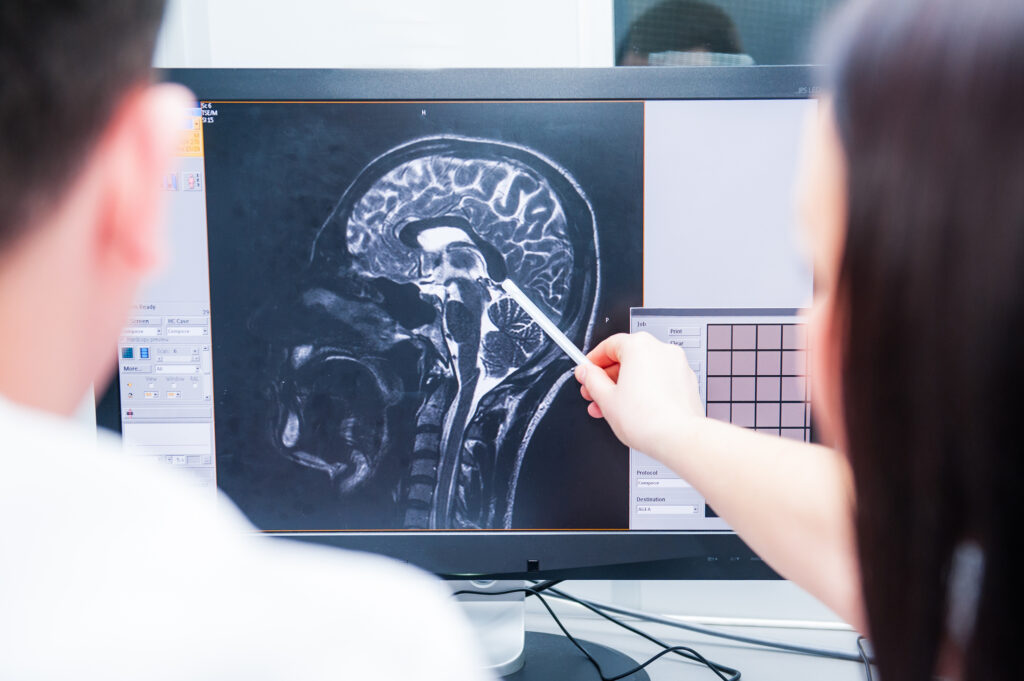Struggling to stay calm before a science test? You’re not alone—and here’s the good news: you don’t have to go through it alone. Science tutoring offers more than just help with homework. It gives students real tools to face tough test questions without panic.
Whether it’s chemistry, biology, or physics, the right guidance can make science feel less like a guessing game and more like a subject you understand. With the right tutor, students gain both knowledge and confidence, so they walk into every test feeling prepared, focused, and in control. Let’s explore how that happens.
The Neuroscience Behind Test Anxiety
Understanding what happens in the brain during test situations helps us develop effective strategies to overcome anxiety. The science of stress response directly impacts how well students can access their knowledge during exams.
Understanding the Stress Response in the Student Brain
When facing a challenging science test, the brain can trigger a “fight or flight” response that floods the body with stress hormones. This physiological reaction evolved as a survival mechanism, but it can severely impair cognitive function during academic tests.
The prefrontal cortex, responsible for critical thinking and recall, becomes less efficient when cortisol levels spike. This explains why students sometimes “blank out” on information they knew perfectly well the night before.
Transforming Negative Stress into Performance-Enhancing Energy
Not all stress is harmful. When managed well, moderate stress can sharpen focus and improve memory recall. An effective online science tutoring service often helps students understand how physical symptoms of anxiety, like a racing heart or sweaty palms, can be reframed as signs of heightened readiness.
By learning to channel this energy into concentration and problem-solving, students start using their stress as fuel rather than a roadblock. This shift in mindset is especially powerful for tackling complex science problems that demand multiple mental steps.
When students learn to reframe their racing heartbeat as increased energy for problem-solving, they can maintain clearer thinking during tests. This cognitive reappraisal technique is particularly effective for complex science concepts that require multiple mental steps.
With a proper understanding of how stress affects learning, students can develop strategies that work with their biology instead of fighting against it.
Customised Science Tutoring Strategies That Reduce Test Pressure
Effective science tutoring goes beyond content review to address the specific factors that trigger anxiety in individual students. By identifying and addressing these pressure points, tutors can help transform the testing experience.
Personalised Assessment of Learning Patterns
Every student processes scientific information differently. Some are visual learners who need diagrams to understand chemistry reactions, while others learn better through step-by-step problem solving.
A skilled tutor begins by identifying these individual learning patterns and any specific knowledge gaps. When students know their strengths and weaknesses, they approach tests with more realistic expectations and targeted preparation strategies.
Building Conceptual Frameworks Instead of Memorisation
Science tests often trip students up when they rely on memorisation rather than true understanding. Effective science tutoring builds comprehensive conceptual frameworks that connect ideas across topics.
When a student understands why chemical bonds form rather than just memorising their properties, they can apply knowledge to unfamiliar test questions with confidence. This deeper understanding creates resilience when facing unexpected test questions. These personalised approaches create a foundation for success, but students also need specific techniques they can apply directly before and during tests.
Practical Science Test Preparation Techniques
Having the right tools at your disposal can make all the difference when approaching science exams. Test preparation isn’t just about knowledge—it’s about having practical strategies for the testing environment itself.
Simulation and Desensitisation Training
One of the most effective ways to reduce test stress is through repeated exposure to test-like conditions. Just as athletes practice under game-like conditions, students benefit from taking timed practice tests that mimic actual exam formats.
This systematic desensitisation helps normalise the testing experience. When the actual test arrives, students experience it as a familiar challenge rather than a threatening unknown.
Science-Specific Problem-Solving Strategies
Science tests often include multi-step problems that can overwhelm anxious students. Tutors can teach specific strategies for breaking down complex questions into manageable parts. Decision trees for physics problems or systematic approaches for balancing chemical equations give students concrete steps to follow when anxiety threatens to disrupt their thinking.
These strategies become mental anchors during stressful moments. With these practical techniques in place, students develop a comprehensive support system that transforms their testing experience.
The Academic Support Ecosystem That Transforms Test Experiences
Creating lasting change requires more than isolated strategies—it needs a comprehensive support structure that addresses both knowledge and confidence-building.
Building a Science Confidence Foundation
Confidence in science doesn’t happen overnight. It builds through progressive mastery experiences where students tackle increasingly challenging problems with appropriate support. Quality academic support establishes this progression carefully, celebrating small victories that gradually build self-efficacy.
The tutor-student relationship plays a crucial role in this process, creating a safe environment where mistakes become learning opportunities rather than failures.
Tech-Enhanced Learning Tools for 24/7 Support
Modern science tutoring often incorporates digital tools that extend learning beyond scheduled sessions. Interactive simulations help visualize abstract concepts, while practice problem generators provide unlimited opportunities to build skills.
These resources give students access to support whenever anxiety strikes, even during late-night study sessions before a big test. This comprehensive approach doesn’t just improve test scores—it develops skills and mindsets that extend far beyond the classroom.
FAQs
1. How can I tell if my child’s science struggles are due to test anxiety or content knowledge?
Look for patterns: Anxiety may be the culprit if your child demonstrates understanding during homework but performs poorly on tests. Many students show physical symptoms like stomachaches before tests or avoid studying altogether. A good science tutor can evaluate both knowledge gaps and anxiety triggers to develop a complete solution.
2. What’s the difference between general tutoring and specialised science tutoring?
Science tutoring specifically addresses the unique challenges of scientific subjects—complex problem-solving, technical vocabulary, and abstract concepts. General tutors may help with study habits, but specialised science tutors understand how to break down complex scientific principles and build the specific type of confidence needed for science assessments.
3. How soon before a test should we start tutoring for maximum stress reduction?
Start 4-8 weeks before major exams for optimal test preparation and anxiety reduction. This timeline allows for content mastery, practice under test conditions, and implementation of anxiety management techniques. Last-minute cramming tends to increase stress rather than relieve it.
Taking the Next Step Toward Stress-Free Science Learning
The journey toward confident science test-taking combines personalised content mastery with evidence-based anxiety management techniques. Effective science tutoring addresses both elements, transforming how students experience science learning and testing. When students understand both scientific concepts and their stress responses, they develop skills that serve them well beyond the classroom.
Disclaimer
The content provided in this article, How Science Tutoring Helps Students Prepare for Tests with Less Stress, is intended for informational purposes only. It is not a substitute for professional educational, psychological, or medical advice, diagnosis, or treatment. While the article discusses strategies that may help reduce academic stress and improve science test preparation, individual results will vary depending on personal circumstances.
Open MedScience does not guarantee specific outcomes from the use of tutoring services or techniques mentioned herein. Any reliance you place on the information is strictly at your own risk. We recommend consulting qualified educators or mental health professionals for tailored advice or support related to academic performance and anxiety management.
References to tutoring services or tools do not imply endorsement or affiliation unless explicitly stated. Open MedScience is not responsible for the content or accuracy of third-party tools or services that may be mentioned.
You are here: home » diagnostic medical imaging blog »



